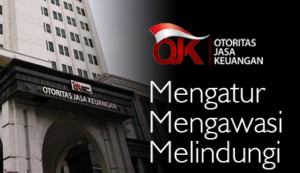
Indonesia’s P2P Lending Regulations poised to encourage growth of local Fintech Providers
by Fintech News Singapore August 22, 2017In December 2016, the Financial Services Authority (OJK) issued regulations on financial technology firms (Fintech) firms that run Peer-to-Peer(P2P) lending businesses.
The regulations were issued in response to the rapid growth of Fintech start-ups in Indonesia, where the number of Fintech start-ups tripled from about 51 companies to 135 companies within the last quarter of 2016.

Otoritas Jasa Keuangan
The objective of the regulation, POJK No. 77/2016, aims to support the growth of Information Technology-Based Lending Services (LPMUBTI) or Fintech Peer-to-Peer Lending platforms to service micro, small and medium enterprises (MSMEs) to various areas in Indonesia.
Supporting Local Businesses
As many MSMEs lack access to conventional financial service industries such as banks, capital markets, financing companies and venture capital firms, local Fintech providers are expected to improve equilibrium and accelerate the distribution of financing to these MSMEs.
The regulation stipulates that only Indonesian entities can be granted a loan and the maximum loan amount is capped at IDR 2 billion (~SGD $200,000) However, this limit can be increased under review from the OJK.
Protecting Consumer Interests
Besides providing opportunities for local Fintech providers to grow and expand, the regulation protects consumer interests by requiring a Fintech company to have IDR 1 billion (~SGD $100,000) in minimum subscribed capital when it registers its business with the OJK and must increase to IDR 2.5 billion (~SGD $250,000) when it applies for a business license. Fintech providers are obligated to apply for a license with the OJK within a year from the date of registration.
The OJK requires registered service providers to submit periodic reports every three months with the following key statistics (i) the number of Lenders and Borrowers; (ii) quality of granted loans; and (iii) list of activities since the Provider was registered with the OJK.
The OJK also requires the Fintech providers to open both an escrow account and a virtual account to perform its services. The virtual account is provided on the behalf of each lending and for repayment purposes, the borrowers pay the installment/settlement through the escrow account of the provider. The settlement made by the borrower to the escrow account of the provider will be remitted to the lender’s virtual account.
An escrow account ensures that a regulated third-party holds the funds on behalf of transacting parties. The contractual arrangement ensures that a third party receives and disburses money in order to protect both borrowers and lenders in a transaction.
Improving and Ensuring National Interests
As part of the efforts to support the National Strategy of Financial Inclusion (SNKI), Fintech P2P lending providers are expected to open access to overseas capital to those from various areas in Indonesia as well as to the general public in need of loans.
Aside from regulating the LPMUBTI or Fintech P2P Lending operation, the regulation advocates the development of a holistic Fintech ecosystem that covers Fintech 2.0 (which are Fintech services in banks, capital market, insurance companies, pension funds, microfinance institutions, financing companies, venture capital firms, pawnshops, underwriting companies, and payments) and Fintech 3.0 (including big data analytics, aggregators, robo-advisors and blockchains).
Filling the Funding Gap
The Indonesian SME market is described as “one of the fastest-growing sectors in the country” and a World Bank Report estimates that potential demand for credit to be at least SGD$8.2 billion.
One of Singapore’s leading P2P lending platform, Funding Societies was the first to launch its Indonesian entity Modalku (“My Capital”) in Jan 2016. Similar to its sister company, Funding Societies, Modalku aims to fill the funding gap by offering business loans to promising businesses that are unbankable or underserved mostly due to lack of collaterals.
Modalku was also the first P2P lending platform to become fully registered with the OJK. Together with Funding Societies, Modalku has raised over SGD$56.6 million across the region (covering Singapore, Indonesia and Malaysia)
With regards to the change in regulations, Modalku co-founder and CEO Reynold Wijaya remarked:
“The fact that OJK focused on P2P lending regulations in Indonesia shows that the government sees the enormous potential of Fintech in supporting financial inclusion.MSMEs have always been the backbone of the Indonesian economy, contributing 60.3% of national GDP and 97% of national employment. With solid regulation, underbanked MSMEs will have better access to financing and find it easier to grow their businesses.”
Further Information:
– OJK issues regulation on IT-based lending services – OJK Report
– Women-owned SMEs in Indonesia: A Golden Opportunity for Local Financial Institutions – World
Bank Report







